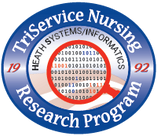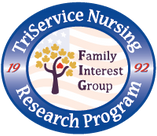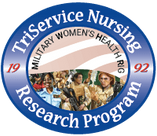2026 Research & EBP Dissemination Course: Register Today!
NEW! EBP Council Toolkit Download Now
Happy CRNA Week! Watch ARIG video on Combined Use of UPAC Vaporizer & Hamilton T1 Ventilator




Funding Military Nursing Research
To Support U.S. National Defense
The TriService Nursing Research Program (TSNRP) ensures America's Forces are medically ready to back up warfighters in harm's way and to care for their families at home. Rigorous operational military nursing research and evidence-based practice (EBP) funded by TSNRP enables America to continue to project power across the globe to maintain peace.
TSNRP is the only Congressionally-mandated Department of Defense program to fund research and EBP projects that save lives, solve complex problems, and improve healthcare outcomes across the entire military healthcare system. Since 2019, TSNRP-funded research has been conducted at more than 30 sites in 23 states, and in collaboration with 35 public universities.
For more than 30 years, the program has contributed to the greatest military force in history by enabling world-class nursing care anytime, anywhere. Resources include:
-
Battlefield and Disaster Nursing Pocket Guide, 2nd Edition utilized by military nurses on deployment and civilian first responders in disasters.
-
TSNRP Nursing Fellowship for military nursing officers to develop critical thinking and leadership skills to lead patient care in the rapidly evolving combat and operational nursing environments
-
Funding for nursing research and evidence based practice projects that advance a fit and ready force.
-
Opportunities to be published in journal supplements like Military Medicine: Advancing Evidence-Based Practice in Military Nursing (Jan/Feb 2024).
-
Research Interest Groups that foster scientific innovation and collaboration across service branches.
-
Courses, scholarly resources, and EBP facilitators to assist military treatment facilities with operational projects.
Leading Collaboratively
Military Nursing Research Interest Groups
Origin & Legacy of Military Nurse Scientists
This 15-minute film short introduces four military nurse scientists who describe how their nursing research and evidence-based practice projects contribute to operational readiness, healthcare outcomes, and public safety.














